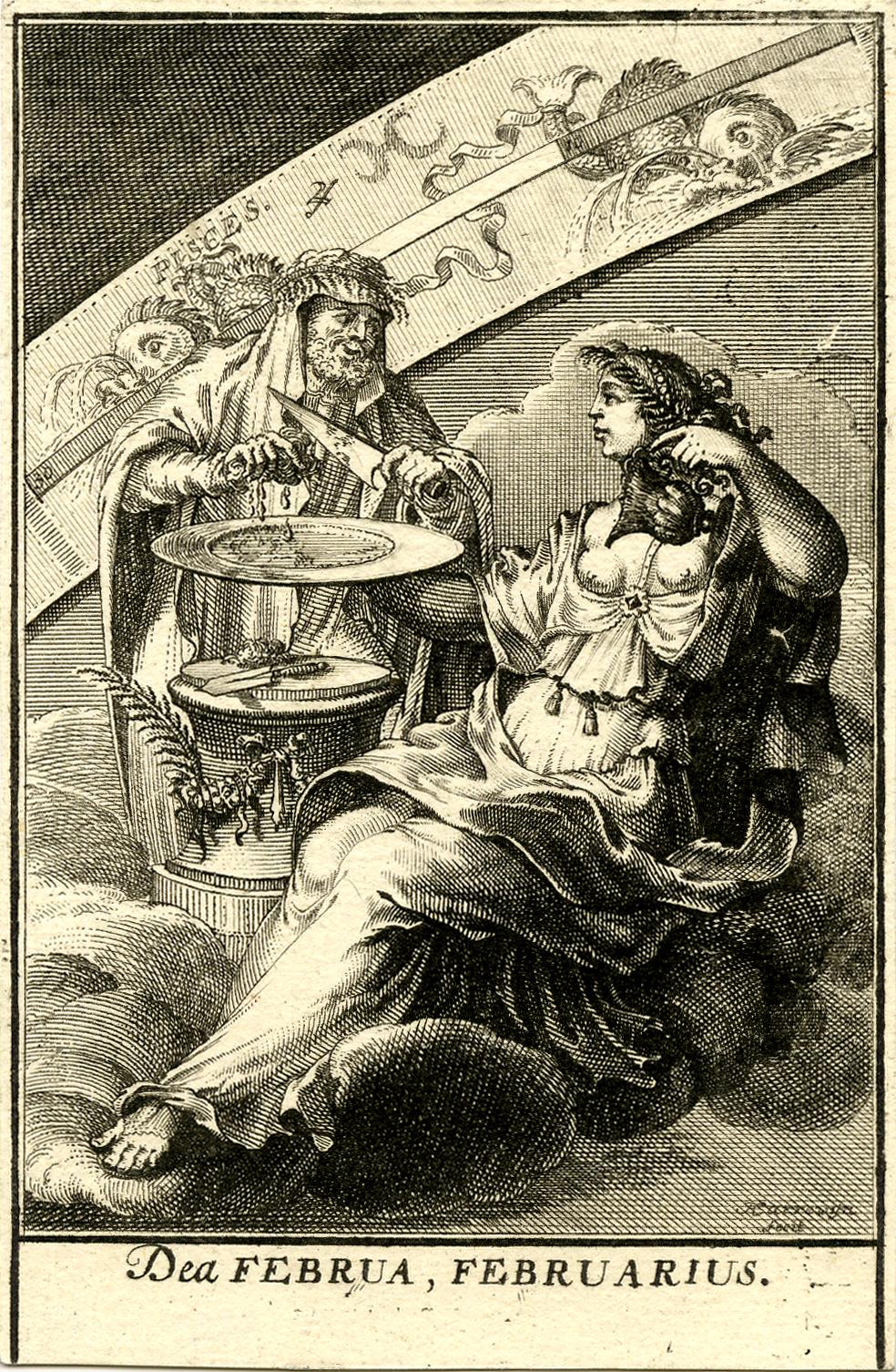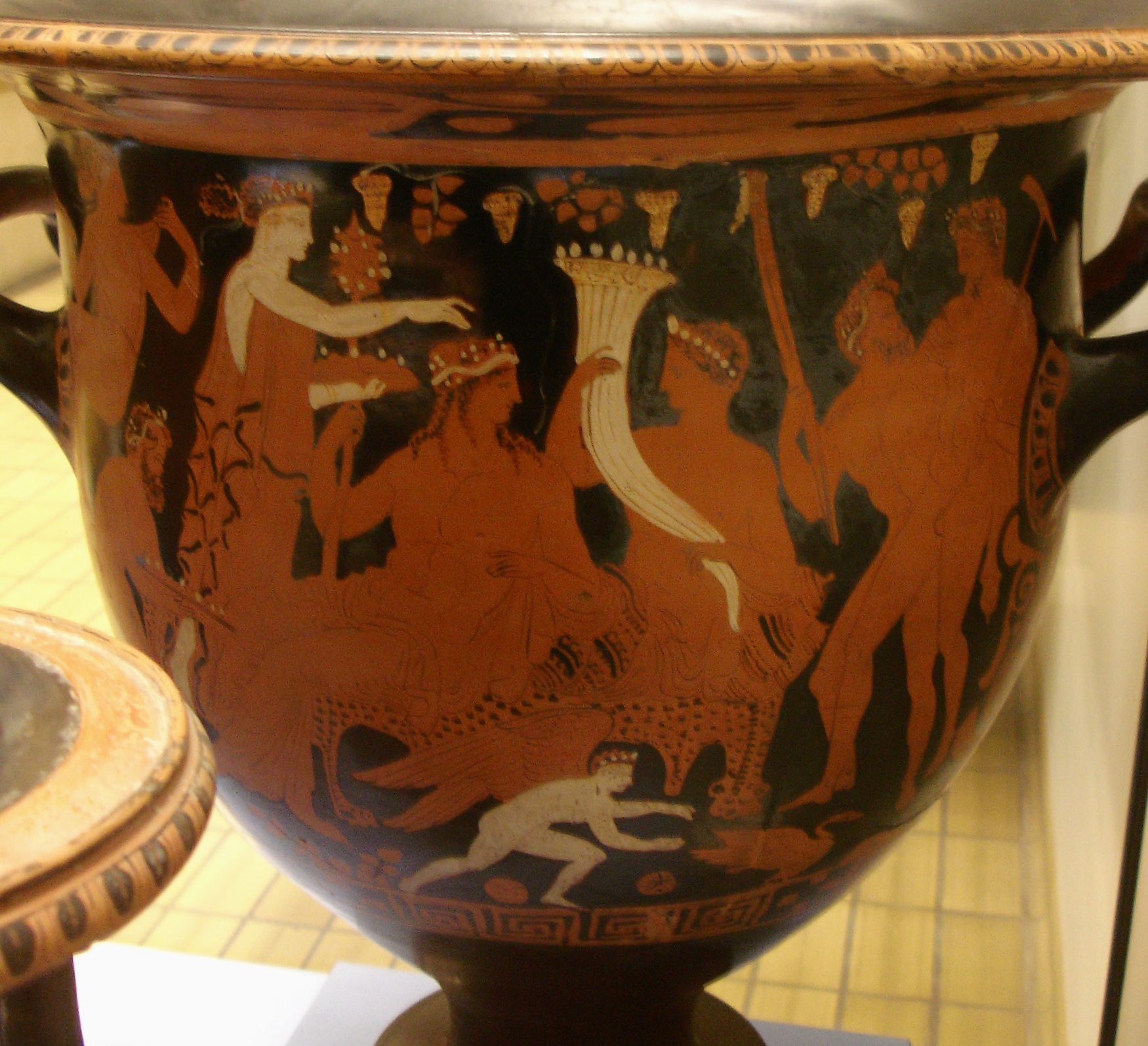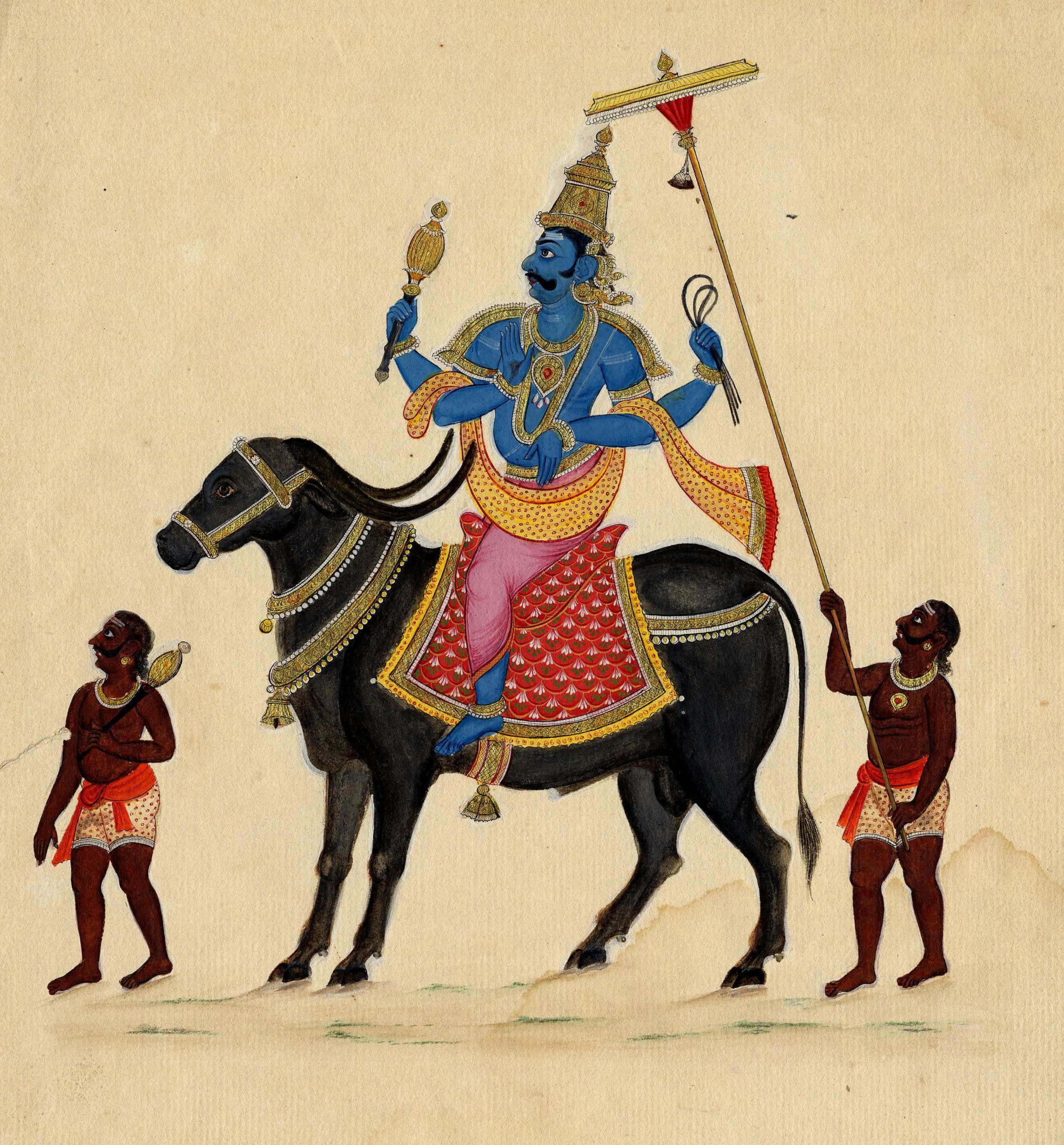|
Februus
Februus is an ancient Italic god of purifications, who was worshipped by both the Romans and Etruscans. He was also worshipped as the god of the underworld by the Etruscans. For them, Februus was also the god of riches (money and gold) and death, both connected loosely to the underworld in the same natural manner as with the better-known Roman god Pluto. Februus' name could mean "the underground ne in the Etruscan language.Johannes Lydus, de Mensibus, 25 Februus may have become the Roman Febris, goddess of fever (''febris'' in Latin means fever). These are possibly connected with the sweating of fevers, which was considered a purgative, washing, and purification process. Februus is possibly named in honor of the more ancient Februa, also Februalia, festival of washing and purification. Februus' holy month was ''Februarius'' (of Februa), hence the English ′′February′′, a month named for the Februa/Februalia purification festival which occurred on the 15th of that month. Th ... [...More Info...] [...Related Items...] OR: [Wikipedia] [Google] [Baidu] |
Febris
Febris (), or Dea Febris (), is the Roman goddess of fevers, who embodied, but also protected people from fever and malaria. Because of this, Febris was a feared goddess whom people wanted the favour of. She does not have a myth of her own. Among her characteristic attributes are "shrewdness" and "honesty", according to Seneca the Younger's ''Apocolocyntosis''.Seneca the Younger, ''Apocolocyntosis'', 6 Febris was accompanied by two daughters or sisters of her named Dea Tertiana and Dea Quartana, the goddesses of tertian and quartan fever of malaria because the fever would come back in every three or four days. Theodorus Priscianus mentions Saturn as Tertiana and Quartana's father. The goddess Febris belongs to the apotropaic (turning away) deities (Lat. ''Dii averrunci'') who have power over a specific evil: to impose it or to get rid of it. Romans worshipped Febris so she would not do harm to them. She may have originated from the Etruscan-Roman god of purification, Februus. ... [...More Info...] [...Related Items...] OR: [Wikipedia] [Google] [Baidu] |
Februalia
Lupercalia was a pastoral festival of Ancient Rome observed annually on February 15 to purify the city, promoting health and fertility. Lupercalia was also known as ''dies Februatus'', after the purification instruments called ''februa'', the basis for the month named '' Februarius''. Name The festival was originally known as Februa ("Purifications" or "Purgings") after the ' which was used on the day.. It was also known as ' and gave its name variously, as epithet to Juno Februalis, Februlis, or Februata in her role as patron deity of that month; to a supposed purification deity called Februus; and to February ('), the month during which the festival occurred. Ovid connects ' to an Etruscan word for "purging". The name ''Lupercalia'' was believed in antiquity to evince some connection with the Ancient Greek festival of the Arcadian Lykaia, a wolf festival ( grc-gre, λύκος, ''lýkos''; la, lupus), and the worship of ''Lycaean Pan'', assumed to be a Greek equivalent ... [...More Info...] [...Related Items...] OR: [Wikipedia] [Google] [Baidu] |
Februa
Lupercalia was a pastoral festival of Ancient Rome observed annually on February 15 to purify the city, promoting health and fertility. Lupercalia was also known as ''dies Februatus'', after the purification instruments called ''februa'', the basis for the month named ''Februarius''. Name The festival was originally known as Februa ("Purifications" or "Purgings") after the ' which was used on the day.. It was also known as ' and gave its name variously, as epithet to Juno Februalis, Februlis, or Februata in her role as patron deity of that month; to a supposed purification deity called Februus; and to February ('), the month during which the festival occurred. Ovid connects ' to an Etruscan word for "purging". The name ''Lupercalia'' was believed in antiquity to evince some connection with the Ancient Greek festival of the Arcadian Lykaia, a wolf festival ( grc-gre, λύκος, ''lýkos''; la, lupus), and the worship of ''Lycaean Pan'', assumed to be a Greek equivalent to ... [...More Info...] [...Related Items...] OR: [Wikipedia] [Google] [Baidu] |
Lupercalia
Lupercalia was a pastoral festival of Ancient Rome observed annually on February 15 to purify the city, promoting health and fertility. Lupercalia was also known as ''dies Februatus'', after the purification instruments called ''februa'', the basis for the month named '' Februarius''. Name The festival was originally known as Februa ("Purifications" or "Purgings") after the ' which was used on the day.. It was also known as ' and gave its name variously, as epithet to Juno Februalis, Februlis, or Februata in her role as patron deity of that month; to a supposed purification deity called Februus; and to February ('), the month during which the festival occurred. Ovid connects ' to an Etruscan word for "purging". The name ''Lupercalia'' was believed in antiquity to evince some connection with the Ancient Greek festival of the Arcadian Lykaia, a wolf festival ( grc-gre, λύκος, ''lýkos''; la, lupus), and the worship of ''Lycaean Pan'', assumed to be a Greek equivalent to ... [...More Info...] [...Related Items...] OR: [Wikipedia] [Google] [Baidu] |
Hades
Hades (; grc-gre, ᾍδης, Háidēs; ), in the ancient Greek religion and myth, is the god of the dead and the king of the underworld, with which his name became synonymous. Hades was the eldest son of Cronus and Rhea, although this also made him the last son to be regurgitated by his father. He and his brothers, Zeus and Poseidon, defeated their father's generation of gods, the Titans, and claimed rulership over the cosmos. Hades received the underworld, Zeus the sky, and Poseidon the sea, with the solid earth, long the province of Gaia, available to all three concurrently. In artistic depictions, Hades is typically portrayed holding a bident and wearing his helm with Cerberus, the three-headed guard dog of the underworld, standing to his side. The Etruscan god Aita and the Roman gods Dis Pater and Orcus were eventually taken as equivalent to Hades and merged into Pluto, a Latinisation of Plouton ( grc-gre, , Ploútōn), itself a euphemistic title often given to Had ... [...More Info...] [...Related Items...] OR: [Wikipedia] [Google] [Baidu] |
Pluto (deity)
In ancient Greek religion and mythology, Pluto ( gr, Πλούτων, ') was the ruler of the Greek underworld. The earlier name for the god was Hades, which became more common as the name of the underworld itself. Pluto represents a more positive concept of the god who presides over the afterlife. ''Ploutōn'' was frequently conflated with Ploûtos, the Greek god of wealth, because mineral wealth was found underground, and because as a chthonic god Pluto ruled the deep earth that contained the seeds necessary for a bountiful harvest. The name ''Ploutōn'' came into widespread usage with the Eleusinian Mysteries, in which Pluto was venerated as both a stern ruler and a loving husband to Persephone. The couple received souls in the afterlife and are invoked together in religious inscriptions, being referred to as ''Plouton'' and as ''Kore'' respectively. Hades, by contrast, had few temples and religious practices associated with him, and he is portrayed as the dark and violent ... [...More Info...] [...Related Items...] OR: [Wikipedia] [Google] [Baidu] |
Underworld
The underworld, also known as the netherworld or hell, is the supernatural world of the dead in various religious traditions and myths, located below the world of the living. Chthonic is the technical adjective for things of the underworld. The concept of an underworld is found in almost every civilization and "may be as old as humanity itself". Common features of underworld myths are accounts of living people making journeys to the underworld, often for some heroic purpose. Other myths reinforce traditions that entrance of souls to the underworld requires a proper observation of ceremony, such as the ancient Greek story of the recently dead Patroclus haunting Achilles until his body could be properly buried for this purpose. Persons having social status were dressed and equipped in order to better navigate the underworld. A number of mythologies incorporate the concept of the soul of the deceased making its own journey to the underworld, with the dead needing to be taken a ... [...More Info...] [...Related Items...] OR: [Wikipedia] [Google] [Baidu] |
Pluto (mythology)
In Religion in ancient Greece, ancient Greek religion and Greek mythology, mythology, Pluto ( gr, Πλούτων, ') was the ruler of the Greek underworld. The earlier name for the god was Hades, which became more common as the name of the underworld itself. Pluto represents a more positive concept of the god who presides over the afterlife. ''Ploutōn'' was frequently conflation, conflated with Plutus, Ploûtos, the Greek god of wealth, because mineral wealth was found underground, and because as a chthonic god Pluto ruled the deep earth that contained the seeds necessary for a bountiful harvest. The name ''Ploutōn'' came into widespread usage with the Eleusinian Mysteries, in which Pluto was venerated as both a stern ruler and a loving husband to Persephone. The couple received souls in the afterlife and are invoked together in religious inscriptions, being referred to as ''Plouton'' and as ''Kore'' respectively. Hades, by contrast, had few temples and religious practices assoc ... [...More Info...] [...Related Items...] OR: [Wikipedia] [Google] [Baidu] |
List Of Death Deities
Many have incorporated a god of death into their mythology or religion. As death, along with birth, is among the major parts of human life, these deities may often be one of the most important deities of a religion. In some religions in which a single powerful deity is the object of worship, the death deity is an antagonist against whom the primary deity struggles. The related term death worship has most often been used as a derogatory term to accuse certain groups of morally abhorrent practices which set no value on human life. In monotheistic religions, death is commonly personified by an angel or demon instead of a deity. Occurrence In polytheistic religions which have a complex system of deities governing various natural phenomena and aspects of human life, it is common to have a deity who is assigned the function of presiding over death. This deity may actually take the life of humans or, more commonly, simply rule over the afterlife in that particular belief system (a sin ... [...More Info...] [...Related Items...] OR: [Wikipedia] [Google] [Baidu] |
February
February is the second month of the year in the Julian and Gregorian calendars. The month has 28 days in common years or 29 in leap years, with the 29th day being called the ''leap day''. It is the first of five months not to have 31 days (the other four being April, June, September, and November) and the only one to have fewer than 30 days. February is the third and last month of meteorological winter in the Northern Hemisphere. In the Southern Hemisphere, February is the third and last month of meteorological summer (being the seasonal equivalent of what is August in the Northern Hemisphere). Pronunciation "February" is pronounced in several different ways. The beginning of the word is commonly pronounced either as or ; many people drop the first "r", replacing it with , as if it were spelled "Febuary". This comes about by analogy with "January" (), as well as by a dissimilation effect whereby having two "r"s close to each other causes one to change. The ending of the ... [...More Info...] [...Related Items...] OR: [Wikipedia] [Google] [Baidu] |
Romulus And Remus
In Roman mythology, Romulus and Remus (, ) are twin brothers whose story tells of the events that led to the founding of the city of Rome and the Roman Kingdom by Romulus, following his fratricide of Remus. The image of a she-wolf suckling the twins in their infancy has been a symbol of the city of Rome and the ancient Romans since at least the 3rd century BC. Although the tale takes place before the founding of Rome around 750 BC, the earliest known written account of the myth is from the late 3rd century BC. Possible historical bases for the story, and interpretations of its various local variants, are subjects of ongoing debate. Overview Romulus and Remus were born in Alba Longa, one of the many ancient Latin cities near the future site of Rome. Their mother, Rhea Silvia, was a vestal virgin and the daughter of the former king, Numitor, who had been displaced by his brother Amulius. In some sources, Rhea Silvia conceived them when their father, the god Mars, visited her ... [...More Info...] [...Related Items...] OR: [Wikipedia] [Google] [Baidu] |
Etruscan Gods
Etruscan religion comprises a set of stories, beliefs, and religious practices of the Etruscan civilization, heavily influenced by the mythology of ancient Greece, and sharing similarities with concurrent Roman mythology and religion. As the Etruscan civilization was gradually assimilated into the Roman Republic from the 4th century BC, the Etruscan religion and mythology were partially incorporated into ancient Roman culture, following the Roman tendency to absorb some of the local gods and customs of conquered lands. The first attestations of an Etruscan religion can be traced back to the Villanovan culture. History Greek influence Greek traders brought their religion and hero figures with them to the coastal areas of the central Mediterranean. Odysseus, Menelaus and Diomedes from the Homeric tradition were recast in tales of the distant past that had them roaming the lands West of Greece. In Greek tradition, Heracles wandered these western areas, doing away with monsters an ... [...More Info...] [...Related Items...] OR: [Wikipedia] [Google] [Baidu] |










